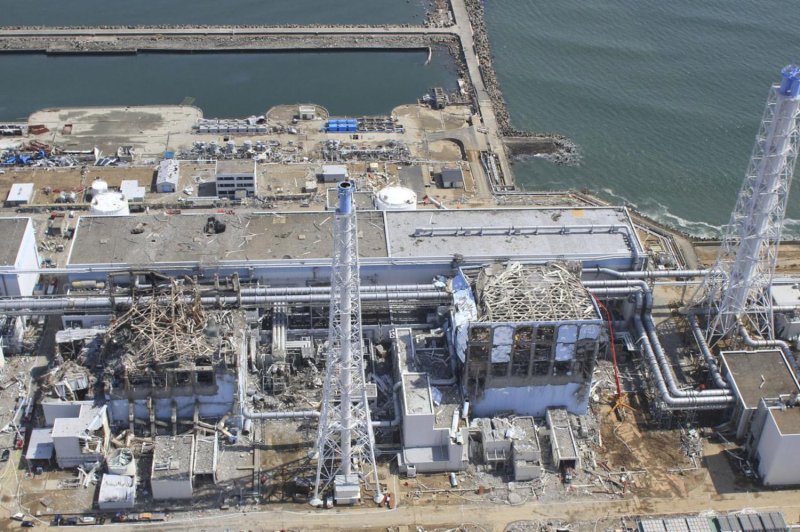
Fish caught off the coast of Fukushima Prefecture, Japan, are safe for consumption, Japan's nuclear authorities say. File Photo courtesy of Air Photo Service Co. Ltd. | License Photo
Feb. 26 (UPI) -- Japan has lifted a ban against all Fukushima seafood shipments for the first time since the 2011 nuclear disaster, after restrictions against the last remaining species of fish, skate, were lifted on Tuesday.
Tokyo's Nuclear Emergency Response Headquarters said all species of fish caught in waters off Fukushima Prefecture meet safety standards, Jiji Press and Yomiuri Shimbun reported.
There are a total of 43 species of Fukushima fish, according to authorities.
Japan placed a ban on shipments of fish with more than 100 becquerels per kilogram of radioactive cesium, which is considered unsafe for consumption, following the 2011 nuclear accident. A becquerel is a measurement of radioactive consumption
Feb. 26 (UPI) -- Japan has lifted a ban against all Fukushima seafood shipments for the first time since the 2011 nuclear disaster, after restrictions against the last remaining species of fish, skate, were lifted on Tuesday.
Tokyo's Nuclear Emergency Response Headquarters said all species of fish caught in waters off Fukushima Prefecture meet safety standards, Jiji Press and Yomiuri Shimbun reported.
There are a total of 43 species of Fukushima fish, according to authorities.
Japan placed a ban on shipments of fish with more than 100 becquerels per kilogram of radioactive cesium, which is considered unsafe for consumption, following the 2011 nuclear accident. A becquerel is a measurement of radioactive consumption
According to reports, skate was deemed safe after 1,008 skate specimens were tested for radiation. All specimens were found to be safe.
Japan's decision to lift restrictions on all Fukushima fish comes at a time when nuclear reactors damaged by the 2011 earthquake and tsunami could restart after a period of decommissioning.
Kyodo News reported Wednesday the No. 2 unit of Tohoku Electric Power Co.'s Onagawa plant in Miyagi Prefecture has been approved for operations after clearing a nuclear watchdog safety screening.
Japan's decision to lift restrictions on all Fukushima fish comes at a time when nuclear reactors damaged by the 2011 earthquake and tsunami could restart after a period of decommissioning.
Kyodo News reported Wednesday the No. 2 unit of Tohoku Electric Power Co.'s Onagawa plant in Miyagi Prefecture has been approved for operations after clearing a nuclear watchdog safety screening.
In March 2011, reactors at Onagawa were shut down in response to the earthquake. The underground floors of the No. 2 nuclear unit were flooded, according to the report.
The plant was spared thanks in part to the cooling system. At Fukushima Daiichi plant, a nuclear meltdown resulted in the daily production of nuclear wastewater.
Japan recently said it has no choice but to release tainted water from Fukushima, and plans to go forward with the discharge despite protests from neighboring South Korea.
About 170 tons of water is contaminated every day at the Fukushima plant. Tokyo has said the water is being purified, using an advanced liquid-processing system. The process does not remove tritium and leaves traces of radioactive elements.
No comments:
Post a Comment